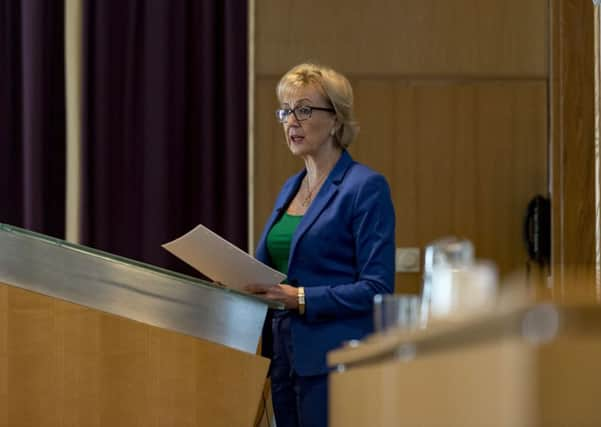YP Comment: Farming: What is Brexit plan? Food for thought over subsidies


Take agriculture and those food producers who are also guardians of the nation’s countryside. With Britain due to leave the Common Agricultural Policy, a new system of farm subsidies will have to be put in place by the Department of the Environment, Food and Rural Affairs.
Yet, given the fundamental failings at the Rural Payments Agency which has become a byword for public sector mismanagement over the past decade, there’s little confidence that this body has the expertise – or capability – to preside over an upheaval on this scale when it can’t cope with the slightest change to CAP policy.
Advertisement
Hide AdAdvertisement
Hide AdOne of the most vocal Brexit advocates prior to the June 23 referendum last year, Andrea Leadsom has been one of the most low-profile ministers since being appointed Environment Secretary and now others are, with justification, beginning to express concern.
In contrast, Ross Murray, the widely-respected president of the influential Country Land and Business Association, has urged the whole of the agricultural industry to come together to forge a new framework for farmers while Parliament’s Environmental Audit Committee, headed by Wakefield MP Mary Creagh, warns that there must be no weakening of EU safeguards which exist to protect wildlife and the countryside.
When its members questioned Ms Leadsom, it is clear they were perturbed at the Minister’s lack of clarity after nearly six months in the job. Farmers deserve better than this. Without any certainty, they can’t plan for the future. And, without farmers, families will have to rely upon imports for food on the table. It’s that fundamental.
Treating asthma
IF the National Health Service is to help itself in 2017, it needs to improve the treatment of manageable conditions like asthma and diabetes which are in danger of becoming an unsustainable drain on its resources.
Advertisement
Hide AdAdvertisement
Hide AdPrevention is better than cure, as this timeless adage suggests, and regular check-ups mean that the health of sufferers can be monitored before it deteriorates and they require hospital treatment as in-patients.
This is borne out by Asthma UK research which suggests that recommended care is provided to just 28.1 per cent of victims in this region, the second lowest figure in the whole of Britain.
With 5.4 million people in the country suffering from breathing and bronchial difficulties that require the use of inhalers and so on, it’s in the best interests of the NHS to make sure the necessary care is available and that the wellbeing of those concerned is reviewed annually as a matter of course.
However, while Asthma UK points to the potentially transformative benefits of digital technology, it is equally important that patients follow the correct medical advice and make sure they receive the treatment to which they’re entitled.
Advertisement
Hide AdAdvertisement
Hide AdIf they don’t keep in touch with the NHS, and let them know any change of address for example, they can’t expect doctors to send them reminders about annual appointments. As such, this is one area of health policy where the NHS can, and should, do more to help patients and vice-versa.
Coal’s lasting legacy
SEVENTY years after the nationalisation of the coal industry, the National Coal Mining Museum already has a rich seam of archive material for its forthcoming exhibition chronicling the history of an industry that – literally – powered Britain until Kellingley Colliery, the country’s last deep mine, closed in December 2015.
Yet, as the exhibition’s title ‘By the People, For the People’ suggests, it was the miners – and their families – who sacrificed so much over the years, and never received sufficient credit as they toiled in primitive conditions underground for little financial reward. Without the extraction of coal, Britain would not be the country it is today.
As such, it’s more important than ever that the memories of miners are not lost to the nation. They’re an integral element of the UK’s social history and their recollections will, in time, help future generations to better understand past events like the totemic 1984-85 Miners’ Strike and subsequent move to green energy.